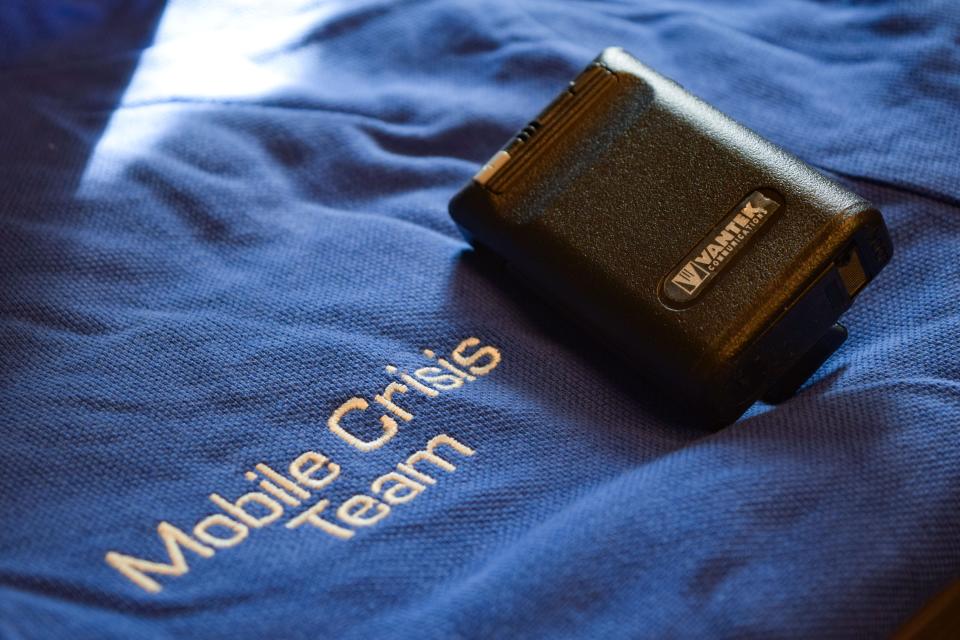Lewis & Clark Behavioral Health Services using creative approach for rural crisis response
Trying to get mental health care in rural parts of South Dakota can be difficult, from lack of access and transportation, to coordinating with emergency responders who may not see mental health crises very often.
But Lewis & Clark Behavioral Health Services, based in Yankton, has been finding new solutions to make sure rural South Dakotans can get the help they may need before or during a mental health crisis.
Thomas Stanage, the executive director of Lewis & Clark, shared some of the organization’s efforts on Friday during the second annual “We Need to Talk” Suicide Prevention Conference in Sioux Falls.
Pilot efforts for rural mobile crisis responses
In larger cities, such as Sioux Falls and Pierre, residents have access to mobile crisis units where trained mental health counselors will respond to a behavioral health emergency rather than law enforcement.
Stanage said in rural areas, such as Charles Mix County, it’s difficult to get a trained mental health professional to someone in crisis who might be over 80 miles away. It can also be difficult to follow up with that person for a next-day appointment.

“We certainly can't even do mobile crisis care in rural areas,” he said. “There's just no way that we would ever send a mobile crisis unit 70 or 80 miles to Platte.”
In order to try and address the lack of mobile crisis units in rural areas, Lewis & Clark has created a pilot effort in Charles Mix County and Union County to develop the response teams in the rural communities served by Lewis and Clark to offer next-day follow-up care to someone in crisis.
More: As police shift to rising mental health needs, social media plays role in rapid response
The pilot effort is funded through the 2023 Big Idea Grant, a $100,000 grant from the South Dakota Community Foundation in partnership with the Bush Foundation.
Better coordination with local emergency services
Stanage said it can be a challenge at times to educate and coordinate with rural law enforcement and emergency services on proper protocols.
“We're just trying to keep those people educated in terms of how the process works because in our smaller counties they just don’t have the opportunity to have procedures in place because it may happen once or twice a year,” he said. “They just don’t have the experienced people to be confident in how to work through a behavioral health crisis.”
More: 988 mental health number a success in South Dakota during first year
As a solution, Lewis & Clark is creating relationships between itself and law enforcement to provide support on what to do if police encounter someone in crisis. Partnerships with Avel eCare, which provides mental telehealth, can also help connect law enforcement to a trained mental health professional when they’re responding to a behavioral health crisis.
Law enforcement in 38 counties have access to a trained mental health professional through an iPad provided by Avel eCare, Brian Erickson, Vice President & General Manager of Behavioral Health and Specialty Clinic Services at Avel eCare, said Friday.
More: Sioux Falls nonprofit hoping for code change to begin 'trap-neuter-return' program for stray cats
“When they identify somebody in crisis, they can call us and we’re there within a minute, launched on an iPad to have a conversation with the individual in crisis,” Erickson said.
Retired law enforcement has also offered to serve as volunteers to transport people who made a crisis contact with Lewis & Clark and who want to have the follow up contact be in person.
Incentives for workforce
Stanage spoke about how it can be difficult to find staff willing to work in the smaller communities Lewis and Clark services. Sometimes, staff at Lewis & Clark will travel over 500,000 miles a year to provide support for the smaller communities.
As a solution, Lewis & Clark has done pay raises and has offered to pay off a staff member’s student loans or pay for their schooling so long as the staff member makes a commitment to serve Lewis & Clark.
“We're convinced that we have to grow our own staff,” he said.
This article originally appeared on Sioux Falls Argus Leader: How behavioral crisis response in rural South Dakota work

